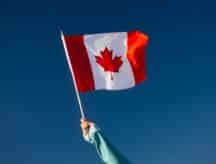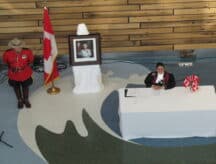King Charles’ coronation: What is the role of the monarchy in Canada?
As the world gathers to watch the coronation of King Charles III, there is a special significance for Canada. The new King will be officially styled as the King of Canada, among his other titles.
This is the first coronation of a British monarch in 70 years. The last one took place in 1952 for Queen Elizabeth II.
To mark the day, Prime Minister Justin Trudeau will be in London to attend the ceremony along with Assembly of First Nations National Chief RoseAnne Archibald, President of Inuit Tapiriit Kanatami Natan Obed, and President of the Métis National Council Cassidy Caron. The Clerk of the Privy Council and Secretary to the Cabinet, Janice Charette, will be in attendance and Canada’s delegation will also include young leaders.
In Canada, the day will be marked by an official ceremony in Ottawa on May 6. There will also be celebrations in communities across the country on May 6 and 7, 2023.
Canada has a King because it is a constitutional monarchy. This means that it has a monarch (The Crown) as its head of state and that technically, the power to govern is vested in the Crown but is entrusted to the government to exercise on behalf and in the interest of the people.
King’s role in Canada
Canada’s parliamentary system is founded on the British, or “Westminster,” tradition. It consists of the Crown, the Senate, and the House of Commons, and laws are enacted once they are agreed to by all three parties.
Discover if You Are Eligible for Canadian Immigration
Presently, the Crown has a minor role in Canada’s government and is purely symbolic. The King’s representative in Canada, the Governor General, attends several ceremonial functions, and represents Canada in state visits and other international events. They are also responsible for formally dissolving parliament when there is an election.
The Governor General also has the power to grant Royal Assent to Bills that pass through Canada’s House of Commons and Senate. Again, while the signature of the Governor General is required to pass a law, it is also their job to remain neutral. This means that if a Bill has passed in the houses, the Crown will sign it into law without getting involved or sharing an opinion.
Put another way, the King and his representatives are not directly involved in the governing of Canada and the role is simply a traditional one.
Swearing allegiance to the Sovereign
Still, swearing allegiance to the King is part of Canada’s citizenship oath.
Immigration Refugees and Citizenship Canada (IRCC) provides a study guide for newcomers who must take the citizenship oath. It says that by swearing allegiance to the King, new Canadians will profess their loyalty to a person who represents all Canadians and not to a document such as a constitution, a banner such as a flag, or a geopolitical entity such as a country.
It goes on to say that these elements are encompassed by the Sovereign (Queen or King) and Canada is personified by the Sovereign just as the Sovereign is personified by Canada.
How Canadians feel about the monarchy
While the citizenship study guide says the Sovereign represents all Canadians, it appears there is an all-time low level of support for King Charles and the monarchy among Canadians.
A recent poll by the Angus Reid Institute found that in anticipation of the coronation, Canadians are now less likely to support the monarchy than in past years. The poll says that they feel the Royal Family is not relevant to them personally (49%) or becoming less so over time (28%).
A smaller group, one-in-five (20%), believe the Royal Family is as important as it used to be, while few (3%) see them growing in consequence.
The poll says that, aside from women over the age of 55, more than 64% of Canadians think that the country should sever ties with the monarchy.
A poll from the same institution in 2022 showed that 49% of Canadians feel the monarchy has outdated values.
Despite a low level of support for the monarchy at the time, there was support for Queen Elizabeth II as an individual. This is not the case with King Charles. The latest data suggests that 60% oppose recognizing him as King of Canada. His highest approval ratings come from Canadians over the age of 54 (35%).
History of the monarchy in Canada
Canada has had a monarchy since 1534, but the first King of Canada was King Francis I of France. This is because Jacques Cartier, one of the earliest European explorers to reach Canada, arrived in the St. Lawrence River that same year and claimed the land for France.
For several years after, the territory that is now Canada was passed back and forth between France and England, both of which had strong monarchies. Ultimately, following a war in the late 18th century, France ceded Canada to Britain which has been the ruling monarchy ever since.
From that time until 1867, the Crown and the British government were largely responsible for major decisions on how Canadian colonies (separate provinces) were governed, although the (now) provinces did have their own legislatures. In 1867, Britain signed the British North America Act and allowed four of the provinces to band together as the Dominion of Canada and take on the majority of governance.
Britain's role in Canada’s government saw only minor changes between 1867 and 1982 when the Constitution Act was signed into law marking Canada’s full independence from Britain. The Constitution Act allows Canada to make changes to its constitution without approval from Britain or the monarchy. Queen Elizabeth II was present in Canada to sign the document.
- Do you need Canadian immigration assistance? Contact the Contact Cohen Immigration Law firm by completing our form
- Send us your feedback or your non-legal assistance questions by emailing us at media@canadavisa.com







